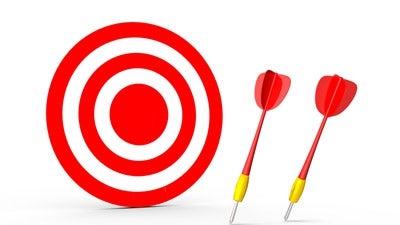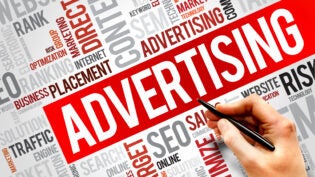
Have you ever looked at your marketing to-do list and thought, “If I have to spend one more minute marketing myself online, I’ll go crazy?”
We’ve all had that thought from time to time. Sometimes, we even dream of the “good old days,” when all you had to do was put an ad in the local newspaper. Luckily for us, there is room for both online and offline marketing techniques. The trick is knowing when to use these two different marketing mediums, and it’s a distinction that too many businesses neglect these days.
There are, of course, many who believe offline marketing has simply been superseded by online marketing, and the argument may be a valid one in some cases. However, by throwing out the value of offline marketing, it becomes a little too easy to underestimate the benefits of shaking hands and getting your face (and product) in front of your potential audience.
With that in mind, let’s take a look and see just what each kind of marketing can offer, and what is important to remember with each approach.
Offline Marketing
Pros
The biggest benefit to consider with offline marketing is that it offers a more personal touch. Whether you are meeting with people at trade shows, networking at local events or simply giving out promotional gear, your physical presence lasts much longer than an online footprint. People will remember you, and associate you with the brand and the product.
One of the biggest reasons brick and mortar stores still do well—despite predictions of their demise—is the ‘human touch’. Never underestimate just how far a little personal attention and a friendly smile can take you.
Cons
Offline marketing requires a lot of effort, and results are difficult to predict and to track. You may create numerous promotional items, but distributing them through the right channels can be tricky, and recording how effective they were in bringing customers to your service or product can often be near impossible.
That’s not to say it doesn’t work (this is, after all, how all marketing was done before the internet!). But, the inability to predict and track results is a downside to offline marketing when compared with marketing online.
Offline Marketing Examples
You don’t have to be a walk-in shop to have an offline presence—though it arguably helps a lot more if you are! Nonetheless, even the most online-focused business can use offline marketing techniques. Here’s a few examples of offline marketing strategies.
Business Cards: Business cards are a simple, multi-functional element that every business should have. Not only are business cards cheap and easy to distribute, they also make your company look more legitimate. The fact that a customer can save your business card, even if they have no current need of your products or services, is invaluable. Because when they do need your product or service, they’ll already have your contact information!
Promotional Items: People love getting free stuff. Whether it is free clothing, calendars, coffee cups, computer hardware or anything else, you can bet that people will be trying to snatch it up. And the best part is that with something like printed t-shirts, you can include your business name and contact information directly on the free item.
Even if the person doesn’t use your service themselves, anywhere that they wear that shirt it will be seen by others.
As stated on ThePrintBar: “Over the course of 50 years, the t-shirt has become a significant part of history and a powerful tool for marketing”.
Company Vehicle: If your company is constantly on the go and driving to meet new customers and clients, then it make sense to brand your vehicles. Not only does this make your business look more professional and cohesive, it gets your brand seen in locations it might otherwise not have been.
Online Marketing
Pros
You don’t need to go far to find marketers willing to sing the praises and advantages of online marketing. Online marketing doesn’t require driving to trade shows or setting up face to face meetings, and you can tell far more easily what is working and what isn’t.
Online marketing diversifies and evolves almost quicker than most marketers can keep up. You don’t need much more than a good idea, an intelligent plan, and effort. If you have those three things, you can get astonishingly good results.
Plus, many small businesses and entrepreneurs like the low-entry cost to using online marketing techniques. While offline marketing can get pretty pricey (think radio ads and roadside billboards), it doesn’t take much by way of funding to set up a website and start meeting your ideal clients (and your colleagues) through social media sites and blogs.
Cons
There are some downsides to marketing online, though you won’t find many people pointing them out! The biggest downside is the incredible size and popularity of online marketing. All the reasons that make online marketing accessible, easy, and potentially lucrative mean that there’s also a heck of a lot of competition!
Getting noticed in a sea of similarly-empowered marketers is hard enough, but there’s also the question of the depth of connection you’re making with consumers. It takes different talents to engage customers deeply online, including good writing skills (blogs, emails, webpages) and potentially a good video presence. Offline marketing relies much more on people to people skills, like being a good listener.
Online Marketing Examples
Social Media: If you or your small business isn’t utilizing social media, then you should to hurry up and get on the ball. Whether you like social media personally or not doesn’t matter—millions of people who do use social media seem to like it just fine! And while you may not like sharing your personal information, social media is a great way to connect with countless people. These are people that you would never have had the chance to connect with through offline marketing. Instead, online marketing and social media makes it just as easy to connect with someone across the world as it is to connect with a neighbor in the same city.
Email Marketing Campaigns: Email marketing campaigns are great when they are used properly. In some cases, people hate their inboxes filling up with emails on a daily basis, especially when they never open the messages. That is why infrequent emails can be valuable to a company that is looking to maximize online efforts. Simply updating your customers about special events or new information as often as once a month is a great way to stay personal through email, without being overwhelming or annoying.
Online Advertising: There are a variety of different online advertising methods that range from pay per click to pay per mile options. Each offer their own benefits and features, but both also offer the ability to directly market to people who are specifically interested in you. With some offline marketing campaigns, you never know who will see your ad. That means that many uninterested people will see it and pay it no attention. However, online you can specifically gear your ads to target markets that are more likely to be interested in your content.
Which Platform is Right For You?
Most, if not all, businesses can benefit from some blend of offline and online marketing techniques, but choosing which to focus on can be tricky.
The obvious thing to consider is what exactly you’re offering. Do you sell physical objects? And if so, are they standardized goods where people know exactly what they want (things like car parts or electrical accessories) or luxury goods that people can be enticed by or may want to try out (clothes or flowers, for instance)? If it’s the former, online marketing can be arguably a lot more beneficial, as convenience and price will most likely engage consumers. In the latter case, offline marketing may be better at involving customers in the kind of exchanges that result in an impulse purchase or hands-on sale.
Does your business serve an older demographic? If that’s the case, offline marketing is an obvious choice as they will very likely be more traditional shoppers. Don’t rule out online marketing though—it can sometimes be more effective than offline marketing in ‘breaking’ the habits of traditional shoppers.
Is the type of consumer you’re trying to reach out to internet savvy? If so, online marketing can work well, though it will need to be framed in unique way in order to grab their attention.
The bottom line is simple: try to determine what type of consumers you wish to connect with, and understand what will work best for them.
Personal Opinion
Personally, while online marketing is now the dominant force, I think there’s still room for creative, penetrative offline marketing, though the extra effort and cost is undeniably a barrier for many.
What do you think? Have you tried both options and experienced better results with one of them?
What would you consider to be good online/offline marketing opportunities? Do you even think that offline marketing can still be a valuable tool for marketers? Let me know in the comments below!
This article was originally published by Firepole Marketing
Author: Bob Gorman is an IT engineer and blogger who recently started to study marketing and ways to promote businesses both online and offline. He wanted to share his ideas and thoughts about traditional vs. modern ways of business promotion. He also enjoys traveling, outdoor sports, and – of course – everything related to IT.
Published: May 21, 2014
2513 Views
2513 Views












